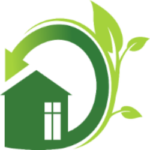The owner of Greenheart Projects has an in-depth knowledge of eco-assessment and environmental planning of the Knysna, Southern Cape area and the Overberg/Fynbos area,
The owner is also a skilled researcher and has assessed or written reports or comments about,
Greenheart Projects are now based in the Sedgefield, Knysna and Wilderness area.
Greenheart Projects offer their services to property developers, NGOs, public groups, government, parastatals and homeowners.
Michael continues to study all matters relating to climate change in all its ramifications in order to achieve a new normal, leading to a stable and sustainable future. Michaels’s recent practical work experience has involved a multifaceted approach to environmental problem solving. The result is that projects are cost effective and low risk and are more likely to be successful in the long term.
He has focused particularly on clear problem identification, on the management of water and human resources in order to arrive at cost effective environmental plans that are sustainable for the future.
BLOG posts (over 90) on all matters environmental can be found on the environmental blog page. For a full list of blog posts go to the categories listed on the Home page under categories with some appropriate sub-categories.

Greenheart Projects can help you with any eco-assessment and environmental planning project from integrating your building into your garden, to be eco-friendly to providing an eco-plan for your farm or an eco-friendly plan for public open space.
For cost effective eco-friendly plot projects go to the Plot Clearing page. The eco blog page contains recent environmental comments and articles on eco-assessments & environmental planning, including videos of interest.
A sub page of this page contains reports of recently completed environmental projects.
Michael did a two- and half-year stint as the chair of Botfriends, he built and maintained the website, which now no longer exists, but can be found on this site (History Bot Estuary matters) and Facebook page and most of the articles and comments were made by him with valuable inputs from the committee and other Botfriends.
A cost effective eco-house was built powered 90% by solar, with extensive water recycling. Local materials were used, very well insulated building, designed to be cool in the summer and warm in the winter. There is a rainfed indigenous garden established in 4 years, sandy soil enhanced with organic matter. This provides a very biodiverse soil, plant and animal eco system which is self sustaining, drought resistant and low maintenance. It produces much material for composting and flowers profusely. The result is many bird species ranging from honey suckers to seed eaters.

In addition to the indigenous garden, an organic fruit and vegetable garden is fed with recycled water. The fruit and vegetable garden had some initial addition of phosphate and organic mater added to the very sandy soils. The continuing addition of organic matter, such as pine needles and chipped alien Port Jackson mulch has produced a highly productive soil. All organic waste from the household and garden is composted. Chemicals are NOT used at all for weeds or bugs, which produces clean, high nutritional value fruit and vegetables.
For more on eco-assessment & environmental planning in action. Go to the:
Past Eco Assessment & Planning which gives you more detail on past projects or
Eco Blog page for more ecosystem posts (over 90 posts).
